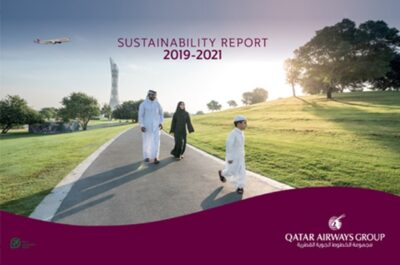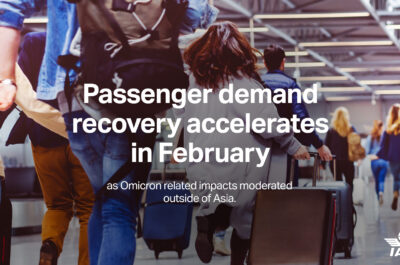Tony Tyler, IATA’s Director General and CEO, spoke at the IATA World Financial Symposium in Barcelona, where he noted that aviation delivers enormous value to the global economy, contributing some $2.4 trillion to GDP, carrying over a third of world trade by value and supporting some 58 million jobs including aviation-related tourism. Historically, however, aviation has not had an equivalent level of success creating value for its equity investors. Tyler highlighted four areas where industry stakeholders have opportunities to set a path toward long-term financial sustainability: Smarter Regulation; Rebalancing the Value Chain; Innovation; and Efficient Processes.
Ladies and gentlemen: good morning. It’s a pleasure to be with you in this historic center of culture, free-thinking, commerce and manufacturing. I would like to add my thanks to our sponsors for their strong support, which makes events such as these possible.
2015 is a special year for the airline industry. Seventy years ago, the leaders of 57 airlines came together in Havana, Cuba, to form IATA. The goals of the Association were clear. IATA was to promote safe, efficient, and economical air transport. In doing so, it would create great value-benefitting the peoples of the world and fostering commerce.
The tag line for our 70th anniversary celebration is “Flying better. Together.” That reminds us of the fact that IATA was created to be a forum for industry collaboration and partnership, undertaking on a collective basis those activities that would be hugely expensive and inefficient for airlines to do individually. We would also be a vehicle to support the development of the standards and best practices necessary for the safe and efficient operation of the global air transport network.
Aviation today is very different compared to when IATA was formed in April 1945. This year airlines will carry 3.5 billion passengers-or around 9.6 million each day – which is more than were carried in the entire year of 1945. Over a third of global trade by value is transported through the skies; and aviation contributes some $2.4 trillion to global GDP. And the industry has evolved into a job creation machine, supporting some 58 million jobs around the world when we include the benefits of aviation-related tourism.
The vision to create value is being achieved. The connectivity provided by aviation enables globalized supply chains for agriculture and manufacturing. Thanks to aviation, you rarely are more than a 24-hour journey away from another population center on the globe. Additionally, we are a lifeline when disaster strikes. The earthquake in Nepal highlighted aviation’s vital role in helping to transport aid and rescue workers, as well as medical supplies and equipment, to those in need. Aviation also enriches the world in myriad non-monetary ways, reuniting friends and families, enabling journeys of discovery, and creating opportunities for greater cultural understanding.
Aviation’s ability to make the world a richer, more connected place rests on three pillars: We must be safe, sustainable and profitable. Safety is the number one priority for everyone associated with aviation. By sharing our expertise and working together through global standards such as the IATA Operational Safety Audit, we have made it the safest form of long-distance transportation the world has ever known.
Sustainability is our second pillar. It is our license to grow-and we have achieved remarkable progress over the decades in terms of reducing noise and emissions. The noise footprint of new aircraft is at least 15% smaller than that of the aircraft they replace and they provide fuel efficiencies that are at least 70% greater than jets produced in the 1960s. As an industry we are committed to further reducing aviation’s impact on the environment and have an aggressive target to achieve carbon neutral growth from 2020, with a 50% reduction in net CO2 emissions by 2050 compared to 2005.
Profitability is our third pillar -and historically, it’s been our weakest- I’m sure you’ve heard the joke that the way to make a small fortune in the airline industry is to start with a large one. The good news is that after many years of hard work and restructuring, the situation is improving. For 2015, we expect an industry net profit of $29.3 billion on revenues of $727 billion, for a net profit margin of 4%. What this means is that the airline industry on average is finally earning its cost of capital.
Let me take a moment to observe that no one needs to apologize for the fact that in 2015 this industry at long last is performing above its usual level of barely-breaking-even. If profitability is not a dirty word when Apple turns in a 23% profit margin than it should not be when airlines achieve an average 4% result.
This result also needs to be put into perspective. Firstly, it is an average for the world, but there is a wide disparity among regions. More than half of the global profits are being made in North America. While the overall fortunes of the industry are improving, for many airlines the struggle to keep revenues ahead of costs is still a formidable challenge, as IATA Senior Economist Julie Perovic will examine in her presentation a bit later this morning.
Furthermore, we must recognize that for any other industry, earning the cost of capital is the absolute minimum performance expected. And we will have to continue this performance for the foreseeable future in order to attract the $5 trillion of capital required to support the doubling of air travel expected over the next two decades.
That’s why this symposium – with its focus on sustained financial health for the industry – is so important. Because if our industry is not profitable, we will not be able to satisfy future demand – and we will certainly not achieve our ambitious environmental targets in the desired timeframe.
We are working alongside our members through the IATA Financial Committee and all of our industry committees on a critical agenda to ensure the future of this important industry by placing it on a firm financial footing. Four strategic themes guide our activities. These are:
- Smarter Regulation
- Rebalancing the Value Chain
- Innovation and
- Efficient Processes
Smarter Regulation
Let’s begin with Smarter Regulation, which covers a wide range of activities including regulations addressing environment, consumer protection, flight training, fuel costs and so forth. Activities in these areas are discussed in depth in the Financial Committee’s White Paper Supporting Airline Industry Achievement of Sustained Financial Health, released after the 2014 Symposium, but I would like to highlight our activities in two areas: Consumer protection regulation and fuel costs.
Now, the industry does not oppose sensible, well thought-out regulation, developed with participation from all stakeholders. Indeed, regulation advanced in partnership with industry and based on global standards is a cornerstone of our success in making aviation so safe.
But when it comes to consumer protection legislation we are not seeing this partnership approach from many States, nor a commitment to embracing global standards in drafting regulations. Instead, we have a proliferation of prescriptive, unharmonized passenger rights regimes around the world that create difficulties for the industry and confusion for customers. Furthermore, the purpose of many of these regulations appears to be to defend passengers from airlines. This results in rules which reduce consumer protection and convenience – through higher fares, less choice, and more confusion-and which raise costs for airlines which must comply with a plethora of differing and often conflicting regulatory regimes.
Working with our members we have launched a campaign to Change the Debate by advocating for a more balanced perspective and demonstrating to policymakers that over-regulation is counter-productive. Let’s be clear: airlines, governments and passengers share a common goal of getting to destinations safely, reliably and on-time. Airlines already have many policies in place to ensure passengers are looked after, for instance the voluntary commitment to repatriate passengers in Europe. IATA members have also unanimously agreed core principles on consumer protection that are aligned with the International Civil Aviation Organization (ICAO). These examples, and others, show that the industry is able to safeguard passenger interests without the need for overly prescriptive and punitive government regulation. We are here to support this message, but to be truly effective it needs to be communicated by everyone in aviation.
Managing the cost of fuel is another priority for airlines. Even with the global collapse in oil prices, fuel represents the largest expense category for most carriers. In 2015, we expect airlines to pay some $191 billion for fuel, or around 28% of total operating expenses. And in many cases, airlines are not seeing the full benefit of lower costs owing to lack of competition among airport fuel suppliers, onerous duties and taxes and/or excessive fuel fees.
Our approach is four-fold:
- To support open access to jet fuel infrastructure and competitive jet fuel markets at airports and address unjustified fees, while supporting ICAO standards that discourage taxation on jet fuel sold for international flights
- To encourage transparency in the jet fuel price structure to insure that items impacting the final jet fuel prices are cost-related.
- To ensure that supply reliability issues are addressed
- To lobby for a political and legislative framework that incentivizes cost-effective large scale production of biofuels and to cooperate with biofuels producers to make it a viable alternative to conventional fuels.
Rebalancing the Value Chain
As we work to persuade regulators to embrace Smarter Regulation, we are also focusing on addressing imbalances in value chain profitability. Despite the improved performance discussed earlier, financial risk and reward are far from being equally distributed across the aviation value chain. In fact, airlines earn the lowest returns while bearing the second highest level of risk. In competitive markets investors would expect to earn a higher return on investment if they face a higher risk or volatility on returns. Apparently, aviation is different.
We are all in this together and agree on many things, but there are some areas where even teammates disagree. Airports and air navigation service providers are our closest operating partners. No aircraft can take-off or land or embark or disembark passengers without their cooperation. But we are also customers for their services. The industry position is simple: Airport and ATC charges must be cost-efficient, which means set at levels that enable airlines to satisfy demand for connectivity, that provide a reasonable return on investment, and that allow for sufficient investment in future developments and service quality.
Furthermore, since infrastructure providers often enjoy monopoly or quasi-monopoly status, governments and regulators have a vital role to play in maintaining vigorous oversight of charges and infrastructure development. Airlines also require a formal role in capital investment decisions, since it is airlines that ultimately pay for those investments. The industry has had success in 2015 in securing some $490 million in reductions in airport and ATC charges and fuel fees and taxes, while some 54% of proposed increases have been avoided, including $42 million in airport charges.
We also have excellent relationships with manufacturers and suppliers. The airframes, engines and systems we operate are technological marvels. They are also extremely expensive. Aircraft ownership costs represent 20 to 25% of total expenses. Airlines have slimmed down and restructured to squeeze unnecessary costs out of their operations. Unfortunately, certain OEM business practices drive up costs by blocking new entry into the market for maintenance, repair and overhaul services. As a result airlines often have little alternative but to sign onto long-term OEM maintenance and parts agreements containing pricing escalations that are often above the inflation rate. IATA is examining commercial, legal and economic options where we may be able to contribute to efforts to rein in runaway aftermarket-related costs.
Innovation
The third strategic theme for sustained airline financial health is the creation of new opportunities through innovation. For example, the New Distribution Capability (NDC) initiative will enable the travel industry to transform the way air products are retailed through the development of a modern, internet-based data standard for communications between airlines and travel agents. As a result, air travelers will benefit from greater transparency and access to all of an airline’s offerings when shopping via a travel agent or online travel site, which is not the situation today. And airlines will be able to move beyond the mostly commoditized displays of fares and schedules in the travel agent channel, to present their products in a more attractive and competitive manner.
A major milestone was achieved at the beginning of September when the first official set of NDC messages were published, with a second version to support interlining expected before yearend. To date, 18 airlines have publicly announced plans to use NDC. I encourage you to help transform airline retailing by participating in an NDC pilot or implementation.
IATA has also launched the NDC Innovation Fund in partnership with Travel Capitalist Ventures. The fund will support innovation in airline distribution by investing in small- and medium-sized companies seeking to develop solutions which support airlines and agents as they take advantage of the enhanced distribution capabilities enabled by the NDC standard. To date over 50 requests for funding have been received.
As the travel industry moves closer to voluntary adoption of NDC, new opportunities are emerging to leverage the capabilities of the standard in related areas. One Order is an industry-led initiative intended to modernize the multiple and rigid booking, ticketing, delivery and accounting methods with a single, flexible order management process. The benefits of the One Order standard will be far-reaching:
- It will greatly simplify the passenger experience as travelers will no longer need to juggle between different reference numbers and documents. All they will need is their order reference number to be easily recognized and served by all.
- Airlines will no longer need to resort to costly reconciliation exercises between PNRs, e-tickets and Electronic Miscellaneous Documents. This will greatly simplify back-office operations for existing and future products. It also will significantly enhance the capability for interlining between full service and ticketless airlines.
- And travel agents will benefit from One Order by being able to follow an identical process to book flights and products from airlines regardless of the airline’s business model or technology capability, greatly improving service and productivity.
The One Order business case is ready and will be presented to the Board of Governors in December 2015 for the final decision on whether to move forward.
Efficient Processes
The final strategic theme we are pursuing is Efficient Processes, which has been a mission of IATA since our formation. The industry has been able to save or avoid billions of dollars in costs through collaborative efforts such as e-ticketing, bar-coded boarding passes, Fast Travel, the baggage improvement program and its successor, InBag. Similar levels of savings are expected through the transition to paperless cargo via the e-freight initiative – so please help make it a reality by adopting the e-Air Waybill.
Expanding the vision of eliminating waste and inefficiency from airline processes is the project to make aircraft technical operations paperless. This will require a concerted effort by all stakeholders including OEMs, regulators, aircraft lessors and financiers to standardize such electronic records and ensure that they are secure and tamper-proof. It is a very exciting project that has the potential to create enormous value in our technical operations.
Theodore is the Co-Founder and Managing Editor of TravelDailyNews Media Network; his responsibilities include business development and planning for TravelDailyNews long-term opportunities.































































































































































































